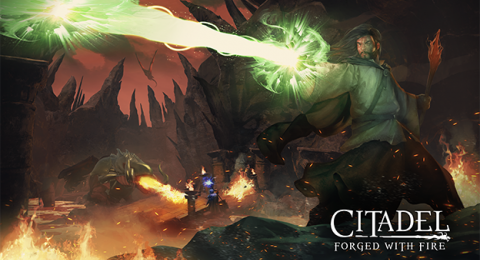
In a lengthy forum post, THQ's creative director Michael Fitch blamed game pirates, hardware manufacturers, game reviewers and end users for the closure of Titan Quest Developer, Iron Lore.
Given the length of Fitch's comment, we'll sum it up for you. Here are the main culprits behind the good studio's closure:
(The following are the opinions and beliefs of Mr. Michael Fitch and have nothing to do with MegaGames)
1 - Game pirates:
Titan Quest was leaked and cracked before its official launch and, apparently, the crack was a "quick-and-dirty" job. The crack missed several anti-piracy checks throughout the game which caused the cracked version to crash whenever you start certain quests.
"So, before the game even comes out, we've got people bad-mouthing it because their pirated copies crash, even though a legitimate copy won't. We took a lot of shit on this, completely undeserved mind you. How many people decided to pick up the pirated version because it had this reputation and they didn't want to risk buying something that didn't work? Talk about your self-fulfilling prophecy. "
2 - Hardware vendors:
"Trying to make a game for PC is a freaking nightmare, and these guys make it harder all the time. Integrated video chips; integrated audio. These were two of our biggest headaches. Not only does this crap make people think - and wrongly - that they have a gaming-capable PC when they don't, the drive to get the cheapest components inevitably means you've got hardware out there with little or no driver support, marginal adherence to standards, and sometimes bizarre conflicts with other hardware."
"CD/DVD drives with bad firmware, video cards that look like they should be a step-up from a previous generation, but actually aren't, drivers that need to be constantly updated, separate rendering paths for optimizing on different chips."... "and you get a lot of s***ty hardware out there, in innumerable configurations that you can't possibly test against. But, it's always the game's fault when something doesn't work."
3 - Game reviewers:
One of the reviewers missed a major feature in Titan Quest although. "Not only was this [feature mentioned] in the manual, and in the roll-over tooltips for the UI, but it was also in the tutorial." ... "When we - and lots of our fans - pointed out that this was the reviewer's fault, not the game's, they amended the review. But, they didn't change the score."
Another reviewer who received a pre-release version of Titan Quest complained about it crashing a lot. "After identifying the problem, getting him around it, and verifying that the bug was a known issue and had been fixed in the interim, he still ran the story with a prominent mention of this bug."
4 - Gamers:
"There's a lot of stupid people out there." ... "Basic, basic stuff, like updating your drivers, or de-fragging your hard drive, or having antivirus so your machine isn't a teetering pile of rogue programs. PC folks want to have the freedom to do whatever the hell they want with their machines, and god help them they will do it; more power to them, really. But god forbid something that they've done - or failed to do - creates a problem with your game. There are few better examples of the "it can't possibly be my fault" culture in the west than gaming forums."
Citing that Call of Duty 4 console versions outsold the PC version by 10 to 1, Fitch concluded that he "can't believe that there's that big of a difference in who played these games, but I guess there can be in who actually payed for them."
"So, if 90% of your audience is stealing your game, even if you got a little bit more, say 10% of that audience to change their ways and pony up, what's the difference in income? Just about double. That's right, double. That's easily the difference between commercial failure and success."








